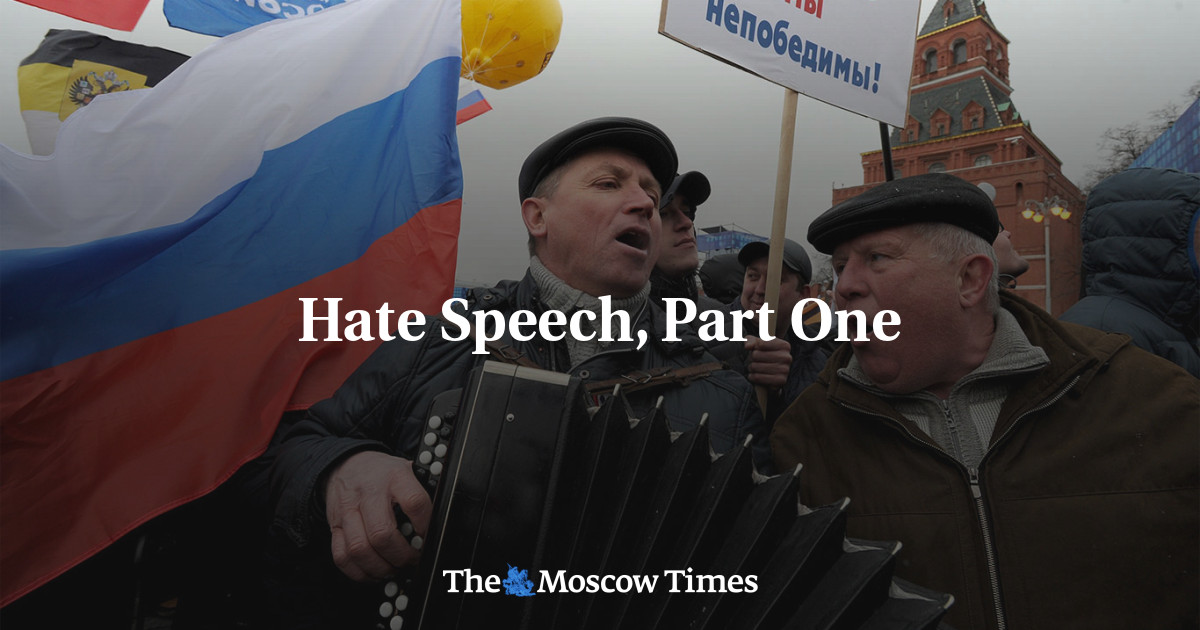
Шовинист: chauvinist
Long before the war began in 2022, I’d been tracking the linguistic dehumanization of Ukrainians practiced by some Russian speakers. At first I was mostly tracking bloggers and young people; lately I’ve been listening and reading Russian media figures, leaders, public figures and even religious figures and academics. Other folks are following this more assiduously than me, since my ability to remain calm as I read this kind of language is limited. When I start shouting at the computer screen I stop for the day.
Even so, I have gathered a lot — more than I could stand to write and inflict on readers in one long piece. So today I’ll just start with the basics, including some updates of a few words I’d covered almost a decade ago. Alas, this is not a new phenomenon.
Хохол is the Russian word for a topknot, a long bit of hair gathered up on an otherwise shaven or shorn head, which was traditional for some Cossacks. Way back in the 1930s the Ushakov dictionary of Russian noted that the word also means “в устах шовинистов-великоросов — украинец” (a Ukrainian when said by Great Russian chauvinists). But in 2009 the Encyclopedic Dictionary simply defined the word as название украинца (первоначально уничижительное) (a name for a Ukrainian [originally insulting]).
I think we can just cross off the word “originally.” Sometimes you find the word simply noted as разг. (разговорное —colloquial). And sometimes you will hear it used in a way that seems affectionate or joking. But it falls into that category of words that outsiders — foreigners —should not use.
You can, however, use the diminutive form хохолок (crest) to describe the tuft of features or fur on some animals. Think of the китайская хохлатая собака (Chinese crested dog) or курица с хохолком (creasted chicken). Or forget the crest altogether: Птицу этой породы называют курицей с причёской (This breed is called a “chicken with a hairdo.”)
Back to humans.
Another old term is малоросс (“little Russian”) from the word Малороссия aka Малая Русь (Little Russia). This was a term invented in the 17th century and used in official Russia documents to denote various southern lands conquered by Russia. A Russian encyclopedia notes: После 1917 года термин “Малороссия” вышел из употребления (After 1917 the term Little Russia was no longer used.) You mostly find this term in older texts, where it is (for me) difficult to determine how neutral it was. In a contemporary text, it is very obviously part of a chauvinistic world view: Славянский союз, воссоединение великорусов, белорусов и малороссов, этого триединого суперэтноса — наш исторический шанс (A Slavic union, a re-uniting of Great Russians, White Russians and Little Russians in that triune super-ethnos is our historical chance.)
Украинец is the proper term for a Ukrainian man (украинка – Ukrainian woman), but it has been chopped up and the first bit has been transformed into all kinds of offensive slang. One of the oldest insulting words in this period is укроп (dill in standard Russian), coined (according to several scholars and researchers) during the Maidan revolution as a short version of украинский патриот (Ukrainian patriot) or украинский оппозиционер (Ukrainian oppositionist) or Украина це Европа = Укроп (UKraine is EuROPe = UKROP).
And then the prefix укр (ukr) is tacked on to other words and abbreviations to make a long list of insulting names: укропеец (Ukr-European); укретин (Ukr-etin); укроимбецил (Ukro-imbecile); укронацист (Ukro-Nazi); укрофашист (Ukro-fascist); укро-националист (Ukro-nationalist); Укро-гестапо (Ukro-Gestapo); укро-диверсант (Ukro-saboteur); укро-президент (Ukr-president); укро-министр (Ukro-minister); укро-ПВО (Ukro-air defense); укропропаганда (Ukro-propaganda); укроСМИ (Ukro-Media); укро-фейки (Ukro-fakes); and укро-паранойя (Ukr-paranoia). As you see, when the prefix укр- or укро- is added, it is meant as “ridiculous/heinous/pathetic/illegitimate” Ukrainian whatever: Укро-русофобия сводит с ума (Crazy Ukrainian Russophobia is driving me nuts).
You get the idea: to make anything sound bad (СМИ) or worse (фашист) just stick УКРO at the front.
The other standard insult and accusation is that Ukrainians are followers of Stepan Bandera, who in Russia is portrayed solely as a collaborator with the German Nazis, with whom no one would ever collaborate except the USSR in 1939 but we’re not going to bring that up and just hope that everyone forgets it because it never happened and it’s really just a nasty Western lie.
Anyway… since the Russian government line is that Ukraine is run by and/or made up of Nazis and fascists, insulting terms are бандеровец (Banderite); бандерофашист (Banderite fascist); бандерофашня (Banderfascists); and бандераст (бандеровец + педераст = Banderite + pedophile/homosexual).
You might also come across the collective noun бандерлог, which I admit I didn’t immediately decipher. It conflates Banderite with Kipling’s Bandar-log (“monkey people”), which outside “The Jungle Book” often refers to a group of nasty, yammering, chattering, nuisance-making people.
When you look at these words all together, you are struck by how childish they all are — like what 10-year-olds come up with in the courtyard to make fun of their classmate. But these words are used by Russian presidents, professors and priests.
Дожили (I never thought I’d see the day).
Leave a Reply